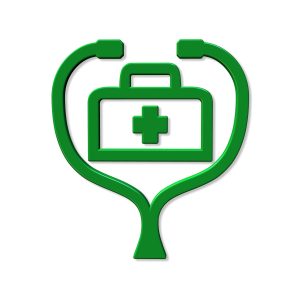When a mental health crisis strikes, it’s natural to wonder where you can seek help immediately. The idea of visiting urgent care for mental health might not be the first thing that comes to mind, but it’s a valid consideration in many cases. In this article, I’ll explore whether it’s possible—and appropriate—to go to urgent care for mental health concerns, what to expect, and how these services compare to other options like emergency rooms or therapy.
By the end, you’ll have a clearer understanding of what you can do in a mental health emergency and how to get the care you need.
Why You Might Consider Urgent Care for Mental Health
When we think of urgent care, we often picture a place to go for physical injuries, flu symptoms, or minor illnesses. However, urgent care centers are increasingly expanding their scope to include mental health services, addressing a growing need for accessible, immediate care. If you’re experiencing an emotional crisis, feeling overwhelmed, or struggling with acute symptoms of mental health disorders such as anxiety, depression, or panic attacks, you might be wondering if urgent care is the right place to seek help.
So, can you go to urgent care for mental health issues? The short answer is yes—but there are some important nuances to consider. Urgent care centers are equipped to handle mental health crises, but the level of care they provide may vary. To determine whether urgent care is the best option for your mental health needs, let’s look at the pros and cons, and compare urgent care to other facilities like the emergency room or outpatient mental health services.
You also may like to read this: Are Men’s Health Clinics Covered by Insurance?
What Type of Mental Health Issues Can Urgent Care Address?
1. Mild to Moderate Anxiety and Panic Attacks
If you’re having a panic attack or experiencing severe anxiety, urgent care can provide immediate assistance. You’ll likely be evaluated by a healthcare provider who can assess your symptoms and determine whether medication (e.g., anti-anxiety medication) is appropriate or if you need further follow-up care. Urgent care centers are equipped with the ability to stabilize a panic attack but may not provide long-term therapeutic care.
2. Acute Stress and Emotional Overload
Mental health professionals at urgent care can assist in situations where you’re feeling emotionally overwhelmed, such as after a stressful life event (e.g., the loss of a loved one, divorce, job loss). They can help you manage your immediate emotional state, provide referrals, or suggest coping mechanisms. While they can’t offer long-term therapy, they can offer short-term support to help you manage in the moment.
3. Medication Management
If you’re already diagnosed with a mental health condition such as depression or anxiety and you need a prescription or a medication refill, urgent care might be able to provide that. They can offer short-term solutions and adjust medication as needed. However, they are not a replacement for your primary care provider or psychiatrist for long-term management.
4. Substance Use Issues
Urgent care can be helpful in managing acute symptoms related to substance use disorders, such as withdrawal symptoms. If you’re experiencing these symptoms, the staff can assess your condition and provide stabilization, including medication to ease withdrawal. Long-term treatment and rehabilitation will likely require a specialized clinic or inpatient care.
5. Suicidal Thoughts and Self-Harm Risk
If you’re having thoughts of self-harm or are experiencing suicidal ideation, urgent care may not be equipped to provide the full level of support you need. While urgent care staff can assess your risk and stabilize you, they will often refer you to an emergency room or psychiatric facility that is better suited for such emergencies. In this case, 911 or your local mental health crisis hotline should be your first call.
When Should You Go to Urgent Care for Mental Health?
Urgent care is ideal for situations where your mental health needs are immediate but not life-threatening. For example:
- If you’re having a panic attack and need short-term intervention.
- If you’re feeling overwhelmed and need a calming environment while you seek further help.
- If you need a medication prescription or refill to manage your symptoms.
However, if you are experiencing life-threatening symptoms (such as suicidal ideation, or severe depression with thoughts of harming yourself or others), you should seek care immediately in a hospital emergency room or call a mental health crisis line.
How Urgent Care for Mental Health Compares to Emergency Rooms
Urgent Care vs. Emergency Room: Which Is Best for Mental Health Crises?
While both urgent care and emergency rooms (ER) can provide help during a mental health crisis, the level of care they provide differs significantly. Here’s a quick comparison:
| Feature | Urgent Care | Emergency Room (ER) |
| Scope of Care | Short-term, immediate care for non-life-threatening conditions | Comprehensive care for life-threatening and severe mental health issues |
| Staffing | May have general practitioners or physician assistants, not typically mental health specialists | Specialized teams, including psychiatrists and therapists |
| Wait Time | Typically shorter than ER visits | Can be long due to triage system prioritizing critical patients |
| Availability of Services | Basic mental health services, referrals available | 24/7 access to full psychiatric evaluation and intervention |
| Costs | Typically lower co-pays compared to ER | Higher co-pays and out-of-pocket costs due to ER services |
When to Choose Urgent Care
If you’re experiencing a mental health issue that is non-life-threatening (such as anxiety, stress, or mild depression), and you require immediate care or assistance, urgent care may be your best option. They can provide medications, help stabilize your emotions, and refer you to specialists if needed.
When to Choose the ER
However, if you are experiencing more severe symptoms—such as a mental breakdown, suicidal thoughts, or self-harm behavior—it is crucial to go to the ER. Emergency rooms are equipped to handle serious mental health crises with immediate, life-saving interventions.
Pros and Cons of Seeking Mental Health Care at Urgent Care
Pros:
- Immediate Access: You can typically see a provider more quickly than at a therapist’s office or even an ER.
- Cost-Effective: Urgent care centers tend to have lower co-pays and out-of-pocket costs than emergency rooms.
- Convenient Location: Urgent care centers are more accessible and often have extended hours compared to other mental health facilities.
- Referrals Available: If further treatment is necessary, urgent care providers can refer you to a specialist or an outpatient mental health center.
Cons:
- Limited Care: Urgent care centers aren’t equipped for long-term mental health management or severe psychiatric conditions.
- Lack of Specialized Care: Mental health professionals, such as psychiatrists and therapists, are not typically on staff at urgent care centers.
- Short-Term Solutions: The care provided is often aimed at immediate stabilization and not long-term therapeutic solutions.
Recommendations for Seeking Mental Health Care
If you are unsure whether urgent care is the right option for your mental health needs, consider these recommendations:
- Assess the Severity of Your Symptoms: If you’re experiencing a crisis (e.g., suicidal thoughts), an emergency room is a safer choice. If your symptoms are more manageable but still need immediate attention, urgent care is a good option.
- Consider Long-Term Care: Urgent care can stabilize you in the short term, but if you require ongoing treatment, it’s crucial to follow up with a mental health professional for therapy or medication management.
- Use 24/7 Crisis Hotlines: If you’re unsure where to go, call a mental health crisis hotline for guidance.















